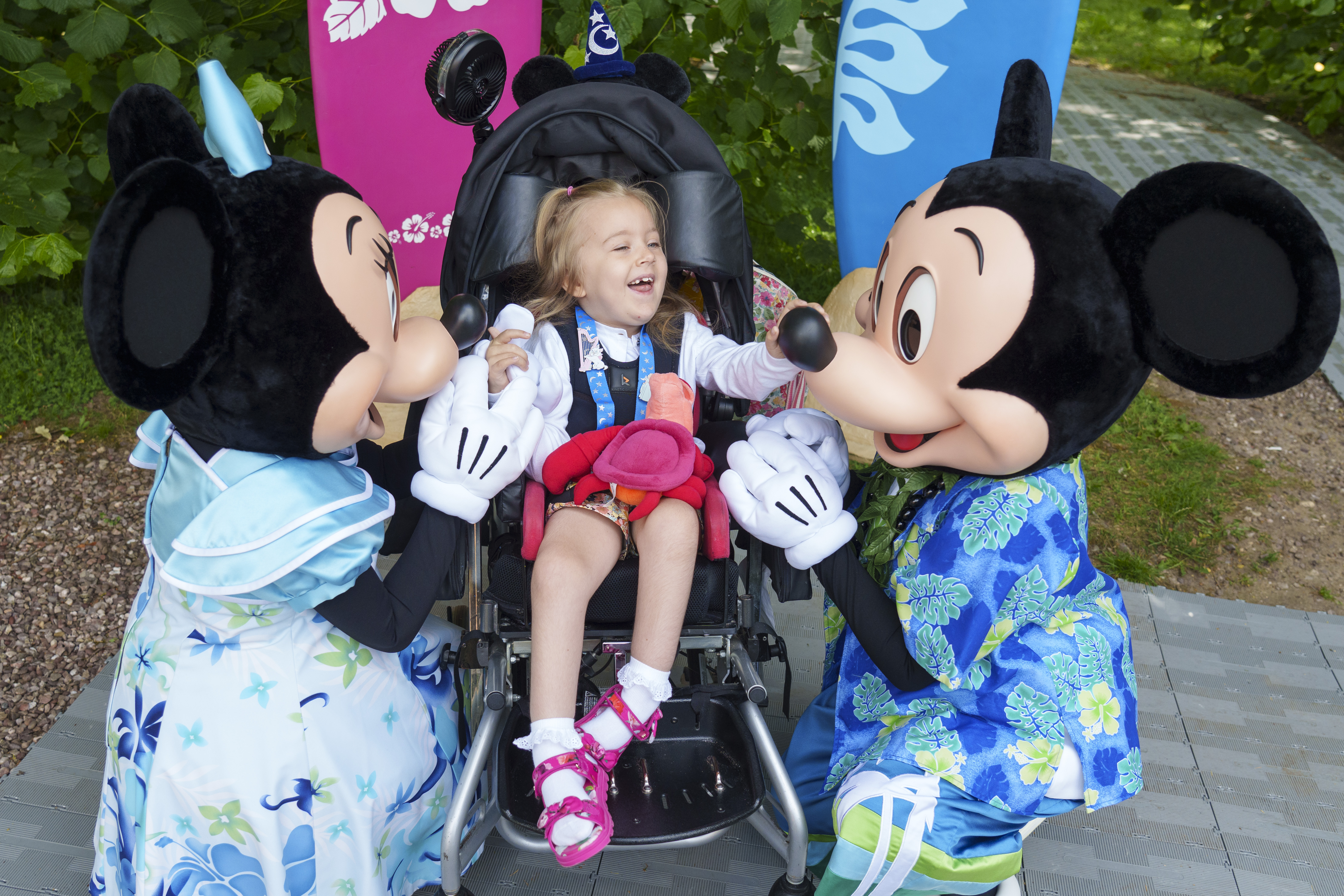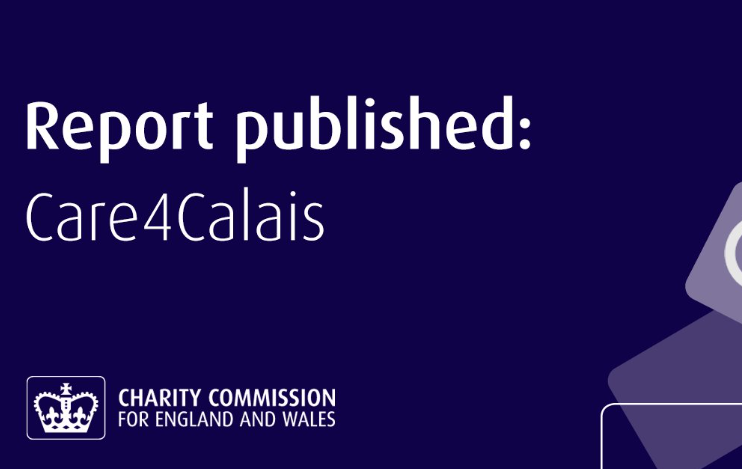A 40-year corporate partnership isn’t always easy to maintain in the charity sector, but Disney and Make-a-Wish UK have gone from strength to strength
-----------------------------------------------------------------------------------------------------
Seeing the impacts of a partnership isn’t always possible in person, but I was lucky enough to visit the ‘A Disney Wish’ experience.
The event was born during the pandemic, at a time when Make-A-Wish had waiting lists for children waiting to go to Disneyland Paris. With restrictions in place, the charity considered if there was a way to bring Disney to the UK. “That was a huge part of trust on behalf of the Disney team, because this isn’t something that happens anywhere else,” explains Sarah Watson, director of finance and technology at Make-A-Wish UK. “We are proud of that trust and the relationship that we’ve built, putting together an event that will have all the Disney magic and all of the learnings from the theory of change.”
For both Disney and Make-A-Wish, the theory of change is an essential part of their work and partnership. Disney used the theory of change because it wanted to understand where it could have the maximum impact, explains Sara Hanson, director of enterprise and social responsibility EMEA & UK at The Walt Disney Company.
“We came up with a hypothesis… if you had a certain scenario and you brought in the magic, what impact would it have on children and families?” But Disney was very conscious about using secondary research, which had already shown the impact Disney can have on children’s lives, so decided to work with charity partners to understand what was happening with beneficiaries.
These charity partners, and Disney, all had a common goal – the emotional resilience and wellbeing of children with potentially life-limiting illnesses. “That was really important for us because in terms of medical needs we can’t really help them as Disney storytellers, but where we can make a difference is bringing that wellbeing factor to families,” adds Hanson.
To do this, they completed a high saturation of interviews, a necessity because of the family dynamics. “Sadly, a lot of our families have got non-verbal children, and some with short lives, so we were trying to make sure that we speak to enough people, but we didn’t want to put people through that process just for the sake of it.”
What they found is that there isn’t one fix. “You can’t do one thing for one child and then they’re emotionally resilient,” says Hanson. “It’s very personal, it depends on the child’s starting point as to what journey you take them on.”
A Disney Wish is a “great wish opportunity,” she adds, but a lot of families still visit Disneyland Paris because that’s right for them. For some children who are on end-of-life care, it might be as simple as a magical moment at home in bed with a film. “Often I think when you’re a big company you think, ‘can we scale up’ but actually it’s really important that we ensure we look at the needs of each family and child as we go on that journey.”
Disney plays to its own strengths and works with its partners who are experts on everything else. “Together we make moments that matter, and it’s the ‘together’ that’s important because we are the magical storytellers, in this instance, Make-A-Wish are the experts in how to create comfortable moments for families,” Hanson explains.
A partnership between the Walt Disney Company UK & Ireland, Make-A-Wish UK and The Kentown Wizard Foundation, the A Disney Wish experience involves transforming The Staffordshire Hotel into an enchanted manor that would rival Disneyland itself, including carousel rides, character experiences and a gift shop.
And its success speaks for itself. “There are families here where Disneyland Paris would never be an option.” By bringing Disneyland to the UK the staff have control of things they couldn’t in a theme park setting, such as slowing down or turning the lights off on the carousel, more personal interactions with the characters and the ability to fulfil specific Disney-based wishes. “Having a partner [to help fulfil] wishes that are magical, inclusive and inspiring, which are values as important to them as they are to us is incredibly important,” adds Watson.
All organisations involved in the event are ‘incredibly passionate’ about being able to continue and so far the partnership is going “from strength to strength”, Watson says, so currently, there is no reason why it cannot continue.
The work that goes into it is astounding. It has to not only be fully accessible, or be able to be converted into somewhere accessible, but also has to have enough space to accommodate 42 families with complex medical needs, whilst feeling enchanted and magical.
This in itself is proof the theory of change work is working; not only for this event but for other partnership moments across Europe. In 2023, its 100th year, Disney will have had 100,000 transformative moments. Despite Make-A-Wish and Disney both being large organisations, there are still lessons other charities and partners can learn from an experience like this.
“Build really strong relationships across the charity sector, whether that’s commercial or charity partners and be really open about sharing the learning, so working in partnership on things like theory of change so that you’re pooling resources because you don’t want to be wasting anything at all,” Watson explains.
Hanson agrees, “The CEO of Make-A-Wish said that it’s quite unusual to be brought into a company’s journey early on, but I think if charities are already partnering with companies and they’ve got a good partnership, suggest going on an impact journey together. You bring a sense of specialisation from each other that you won’t necessarily get in isolation.
“A charity can leverage the true contribution of each company and bring that together to have an impact rather than keep their partners separate.” She concludes: “We can put our foot forward and really make a difference.”
Latest News
-
Report warns of ‘fragile’ social investment market
-
Challenge events main driver of donations for charities of all sizes, research shows
-
Rebranded charity says old identity ‘was like driving with the handbrake on’
-
Fear of AI’s impact on charity sector grows among candidates, survey finds
-
Louise Dawtry: The culture shift that starts at lunch
-
One in seven people naming charities as life insurance beneficiaries
Charity Times video Q&A: In conversation with Hilda Hayo, CEO of Dementia UK
Charity Times editor, Lauren Weymouth, is joined by Dementia UK CEO, Hilda Hayo to discuss why the charity receives such high workplace satisfaction results, what a positive working culture looks like and the importance of lived experience among staff. The pair talk about challenges facing the charity, the impact felt by the pandemic and how it's striving to overcome obstacles and continue to be a highly impactful organisation for anybody affected by dementia.
Charity Times Awards 2023
Mitigating risk and reducing claims

The cost-of-living crisis is impacting charities in a number of ways, including the risks they take. Endsleigh Insurance’s* senior risk management consultant Scott Crichton joins Charity Times to discuss the ramifications of prioritising certain types of risk over others, the financial implications risk can have if not managed properly, and tips for charities to help manage those risks.
* Coming soon… Howden, the new name for Endsleigh.
* Coming soon… Howden, the new name for Endsleigh.
Better Society

© 2021 Perspective Publishing Privacy & Cookies













Recent Stories